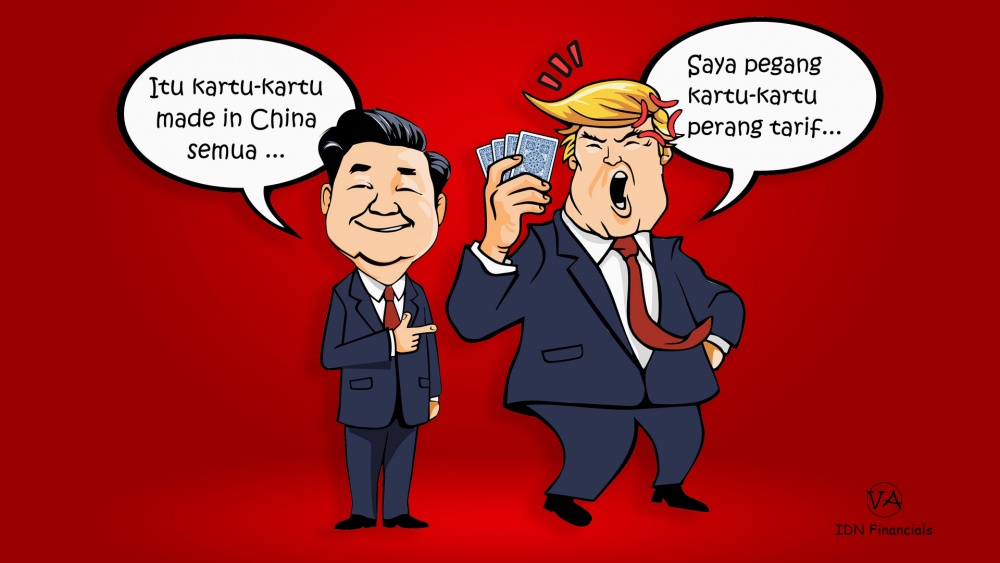Five trump cards China holds against Donald Trump

JAKARTA – The trade war between the United States and China has entered a new phase, with both sides signalling a potential easing of the high tariffs imposed on one another. Most recently, the US introduced a 245% tariff on Chinese imports, which was met with a 125% retaliatory tariff from China.
While the door to negotiations is now slightly ajar, Chinese President Xi Jinping has declared that he is ready to “fight to the end” against the US tariffs.
As reported by the BBC, here are five key strengths China possesses in countering economic pressure from President Donald Trump:
First, long-term economic resilience. As an authoritarian state, China can endure economic strain longer than a democracy like the US. Xi does not face elections, allowing him greater freedom to pursue long-term strategies.
With a vast domestic market and incentives such as home appliance subsidies and elderly tourism programmes, China is seeking to boost internal consumption.
Mary Lovely, an economist at the Peterson Institute, noted that China is willing to absorb economic losses to preserve national dignity amid US pressure.
“Nonetheless, the property crisis and unemployment remain internal challenges that could spark social unrest,” she added.
Second, investment in future industries. China is solidifying its position in strategic sectors such as electric vehicles (EVs), artificial intelligence (AI), and semiconductors.
For instance, BYD has surpassed Tesla as the world’s largest EV manufacturer, while the DeepSeek chatbot is seen as a serious rival to ChatGPT.
Although many US firms are attempting to shift supply chains away from China, they are struggling to find equivalent alternatives. State support continues to give China a competitive edge in global manufacturing.
Third, diversified trade partners and food security. Since facing trade sanctions in 2018, China has accelerated trade expansion through its Belt and Road Initiative and deepened ties with the Global South, including Southeast Asia, Latin America, and Africa.
US exports to China, including key products like soybeans, have dropped significantly, with Brazil becoming the preferred supplier.
“In 2023, China was the largest trading partner for 60 countries, double the number for the US,” said Marina Yue Zhang from the China Relations Institute.
This strategy, Zhang added, not only reduces dependence on the US but also strengthens China’s national food security.
Fourth, financial leverage via US Treasury bonds (UST). China holds around USD 760 billion in US government bonds, second only to Japan.
While often described as a financial “weapon,” its effectiveness is limited. A large-scale bond selloff would shock global markets and backfire on China.
Still, market reactions to Trump’s tariff policies show that Beijing now understands Washington’s weak spots—especially if bond markets respond negatively.
Fifth, rare earth monopoly. China dominates the production and refining of rare earth minerals, crucial to industries including tech, electric vehicles, and defence. According to the International Energy Agency (IEA), China accounts for 61% of global production and 92% of refining.
In response to US tariffs, Beijing has restricted exports of seven types of rare earth metals such as antimony. This has disrupted global markets and bolstered China’s negotiating position in strategic sectors.
Thomas Kruemmer of Ginger International stressed that any disruption to rare earth supplies would severely impact the US defence industry.
“Virtually all electronic devices depend on these metals,” said Kruemmer. (EF/KR/ZH)